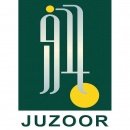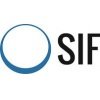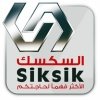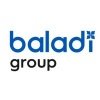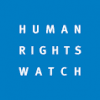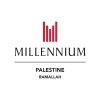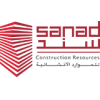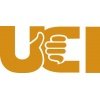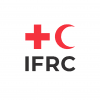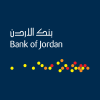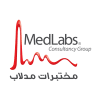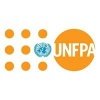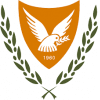Gender Analysis
Terms of Reference: Gender Analysis
Project:
Strengthening resilience in Conflict-Affected Communities and camps in West Bank: Improving Food Security, Livelihood, Health, Social Cohesion, and Disaster Preparedness with a Focus on Women’s Empowerment.
Project duration: October 2025 (tentatively) - run 3 years
Project Country and locations: Palestine, West Bank
Locations will be selected among 40 rural communities in Area C and refugees camps. Potential areas could be Nablus, Hebron, Bethlehem, Tubas, Jordan Valley. More detailed information will be shared during the selection phase.
PCA envisaged start and end dates: End of May to End of July 2025
Overview
WeltHungerHilfe (WHH), Diakonie Katastrophenhilfe (DKH), International Orthodox Christian Charities and Juzoor as consortium seeks to enhance community resilience in Area C and refugees camps in West Bank, Palestine, through Transitional Development Assistance (TDA) funded by the German Federal Ministry for Economic Cooperation and Development (BMZ). Affected people and communities in these areas face multiple challenges due to violence, climate change impacts, and economic insecurity. Integrated approaches to resilience focusing on livelihoods, food security, gender-based violence (GBV), health, social cohesion and disaster preparedness (DRR) have particular focus.
A comprehensive gender analysis provides essential insights into the specific challenges faced by women, men, girls, and boys, while also highlighting their unique strengths, vulnerabilities, and aspirations.
By identifying these factors, consortium partners can design programs that move beyond gender sensitivity to truly transformative, empowering individuals and communities to recover and rebuild with resilience in line with BMZ Feminist development policy for sustainable development and BMZ’s strategy on transitional development assistance (2020). Moreover, the gender analysis will serve as a foundational tool for WHH, DKH, IOCC and Juzoor future programming, ensuring that all initiatives are equitable, inclusive, and responsive to the distinct needs of all gender groups.
Purpose of the Gender Analysis
The purpose of the gender analysis is to provide a detailed understanding of the varying dynamics that exist within the targeted communities. By examining the different roles, responsibilities, and experiences of women, men, girls, and boys, the analysis will uncover the root causes of gender disparities and identify opportunities to promote gender equality through program.
A particular focus shall be put on understanding how the current crisis is affecting gender dynamics in either a positive or negative way.
The project’s design and implementation strategies will be influenced by the analysis of this study to ensure that the designed activities are gender mainstreamed, gender responsive - and conflict-sensitive.
The analysis will inform the consortium’s BMZ TDA proposal and serve as a foundation to ensure GG-1 or GG-2 alignment. It will guide sector-specific interventions and provide baseline insights to track progress on gender equality and inclusion objectives.
The consortium will use the recommendations to 1) Seek to review and adapt activities to advance gender equality in the program in terms of women and girls' meaningful participation and empowerment, and 2) Set a plan for building the capacity of local partners on these topics if needs are identified to ensure sustainability.
Objectives of the Gender Analysis:
- Within the targeted communities, briefly examine the gender dynamics for each core area of inquiry: access and control; power dynamics and decision making; practice and participation; cultural practices, perceptions, and social norms; laws, policies, regulations and institutional practices; gender-based violence. Where relevant and feasible, the analysis should apply an intersectional lens and examine how gender intersects with dimension of potential vulnerability, such as age, disability, displacement, ethnicity and socio-economic status, which shape access, power and protection risks.
- Assess if and how traditional gender dynamics are impacted by the ongoing crisis. Identify risks and opportunities for gender equality to be mitigated or strengthened within the unfolding context.
- Identify how gender dynamics analysed in objective (I) and (II) impact on the protection risks faced by men, women, boys and girls by analysing specific threats, vulnerabilities and capacities through a gender lens (please note that it is not required to conduct a full protection analysis).
- Provide actionable recommendations to design gender responsive and transformative interventions within the consortium sectors of intervention.
Scope of the work
- Inception phase
- Desk review: Review of existing literature, project documents and relevant studies on gender issues in the West Bank.
- Methodology: development of an analysis plan with clear identification of information needs, methods of data collection, sources of information and analysis output. The consultant is expected to combine secondary and primary data analysis, both quantitative and qualitative (with an emphasis on qualitative data).
- Sampling of target communities: out of the 40 communities targeted by the project, the consultant will propose a sampling of 10-12 communities that will ensure representation of the diverse community groups in terms of demographics, socio-economic status, gender dynamics and exposure to protection risks. The sampling should take into account access constraints and a contingency plan should be included in the inception report to indicate how the study will proceed in case of access restrictions to one or more locations.
- Development of data collection tools to be based on the ones provided as reference by the consortium to be adapted to meet the objectives of the analysis and ensure relevance to the West Bank context.
- Inception workshop with consortium partners.
Deliverable #1: Inception report detailing the methodology, sampling and access considerations, workplan of key activities and data collection tools.
- Field data collection
- Training of staff and enumerators on the objectives of the analysis and the data collection tools. Test of data collection tools.
- Conduct field visits to the targeted districts to gather qualitative data through focus group discussions, from community members and leaders, including and segregated by women, men, youth, vulnerable and marginalized groups.
- Gather insights through key informant interviews from local government authorities, local partners, project stakeholders and other key stakeholders.
- Analysis and validation
- Analyse and triangulate all data collected during the desk review and fieldwork to identify patterns, trends, and key finding.
- Draw recommendations per sector of intervention and clearly link them to the findings. For each sector, propose actionable steps and approaches in targeting, activity design and monitoring.
- Use a participatory approach to validate findings with the communities and project stakeholders.
Deliverable #2: Draft report presenting a clear synthesis of the key finding that integrate qualitative and quantitative insights and link them to sector-specific barriers and opportunities for gender-responsive and safe programming. It should include actionable recommendations (preliminary) and suggest indicators, disaggregated by sex, age and disability.
- Validation Workshop: Organise and conduct a workshop to present draft report and validate findings with local stakeholders and project partners
- Final reporting
- Finalize report based on inputs provided on the draft report (at least undergone two rounds of review)
- Final workshop with consortium partners to present key findings and recommendations.
Deliverable #3: Final report
Deliverable #4: Short presentation of key findings and recommendations in the form of a 2-pager and a PowerPoint.
Please note that the study is part of a more comprehensive bulk of analysis that will be conducted in parallel (Resilience, Peace and Conflict, Gender and Inclusion, Market and Value Chain). Therefore, the selected consultant/team must be ready to coordinate and harmonize the approach with other consultants/teams of consultants, under the supervision of the partners organizations forming the consortium.
Supervision/Reporting line and Duty Stations
The contractor will report directly to the WHH Assessment and Analysis Expert in HQ and coordinate with the Head of Programme in Amman.
Logistics
The consultant(s) will be responsible to handle all the logistics for the data collection at the field level. The consortium members’ teams may be able to provide support if needed.
Consultancy Deliverables
The deliverables of the consultancy will be:
- Inception report
- Draft/Preliminary report
- Final report + short presentation
The Gender Analysis report should be max 20 pages and include at least:
- Executive summary
- Background
- Methodology and documentation of the process
- Limitations and challenges
- Key findings and analysis per core area of inquiry
- Protection risks analysis and mitigation strategies related to gender dynamics
- Conclusion
- Recommendations (intervention matrix summarizing barriers, opportunities and recommendations per sector)
The Contractor will submit to WHH soft copies of all quantitative and qualitative data (completed questionnaires, recorded interviews, focus groups, etc). Any other documents that will be used or collected in the course of the consultancy.
Proposed Timeframe
Task
Tentative timeframe / Deadline
Responsible
Inception report
8 days
Consultant(s)
Inception Workshop (present and discuss desk review findings, proposed methodology and tools); approval by the consortium organizations
1 day
Consultant(s), WHH Amman, WHH HQ, IOCC, Juzoor, DKH
Train local researchers and/or enumerators, if needed
2-3 days
Consultant(s)
Data collection
1-2 weeks
Consultant(s)
Data cleaning, analysis and prepare draft report
1 week
Consultant(s)
Consultation process with local stakeholders e.g. validation workshop
5 days
Consultant(s)
Submission of preliminary report to DKH
Mid/End of June
Consultant(s)
Review of draft report
1-2 weeks
Consultant(s), WHH Amman, WHH HQ, IOCC, Juzoor, DKH
Validation Workshop with consortium organizations
1 day
Consultant(s), WHH Amman, WHH HQ, IOCC, Juzoor, DKH
Final Report submitted
Mid July
Consultant(s)
Two months, indicative starting date 15th May 2025 to 15th July 2025.
Payment milestones
25% at the agreement signature.
25% after validation of the inception report.
25% after validation of draft report.
25% after validation of the final reports.
Safeguarding and Data Confidentiality
The consultant(s), along with any local researchers, enumerators and sub-contractors, will be required to sign and follow WHH’s Code of Conduct (Annex 1).
All primary data collected during the research process is to remain confidential and is not to be shared with third parties.
Conflict of Interest
The consultant(s) must declare any potential or perceived conflicts of interest linked to any aspect of this study. Such conflicts of interest may include, but are not limited to:
- Business interests in a community included in the study
- Financial, family, political or business affiliation with any partner’s consortium staff, or local authorities included in the PCA.
Declaration of a conflict of interest will not be viewed negatively and will be assessed on a case by case basis. Failure to declare a potential conflict of interest may lead to the disqualification of the consultant’s application or, if selected, the termination of the consultant’s contract
Qualifications
Requirements
Essential
Desirable
Qualifications
Bachelor’s (master’s preferred) in public health, anthropology, gender studies, or a relevant field of social sciences
PHD in gender, social studies
Experience
Minimum of 7 years applied experience with humanitarian or development organization in designing gender-sensitive and mainstreamed planning and implementation tools.
Demonstrated experience with gender assessments and/or gender analysis.
Experience with gender mainstreaming and gender analysis requirements of major funding institutions, including USAID, GAC, SIDA, FCDO, and ECHO.
Applied experience in gender mainstreaming approaches health, nutrition, GBV, MHPSS, WASH, FSL
Competency
Excellent writing skills and ability to develop practical, clear guidance documents and tools.
Strong planning and communication skills to operate effectively in remote environments.
Language
English and Arabic fluency (oral, written)
German (desirable)
Location
Access to field locations is a mandatory requirement
Application
Consultants/consultancy firms are invited to submit:
- Technical Proposal: Detailing the approach, methodology, and timeline for the assignment
- Capacity statement: Demonstrating experience and ability to deliver on the ToR
- Sample of previous work: At least a relevant report, including at least one study that was 100% led by the lead consultant
- Financial proposal: Budget breakdown including consultancy fees, logistics, and any related costs, VAT
- CVs of key personnel: Detailing qualifications and experience
- References: Contact details for two references for similar assignments done not more than two years ago
- Filled and signed Supplier Declaration
Applications should be submitted to [email protected] by April 24th, 2025.
Working languages are English and Arabic. All written outputs must be provided in English
Only shortlisted candidates will be contacted.
Annexes
Annex 1: Code of conduct
Annex 2: Summary analysis framework
Additional annexes will be provided to selected candidates (project concept note, draft report template, reference data collection tools, etc.)




